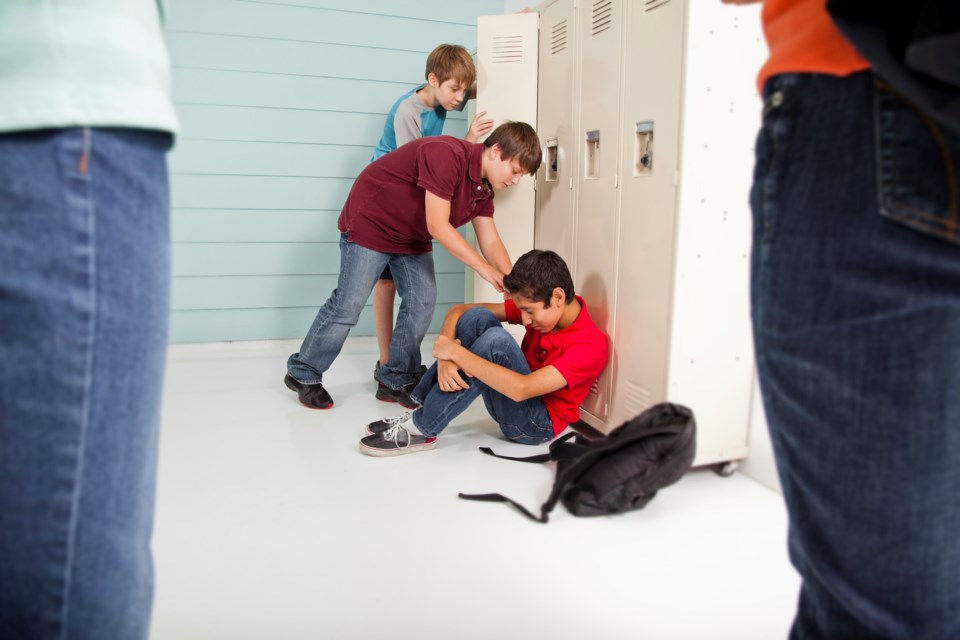Fifty-eight per cent of Canadian youth report seeing others at school insulted, bullied or excluded based on their race or ethnicity, says new data from UBC and the Angus Reid Institute.
“No child should ever experience bullying and exclusion because of their race or ethnicity, but sadly, this study finds that racism is a daily reality for many Canadian children,” UBC president Santa Ono said.
Indigenous children are twice as likely as their white counterparts to say that they’ve faced personal abuse themselves, visible minority children are three times as likely and 14% overall of the 872 youth aged 12-17 say they’ve experienced it themselves, the study found.
Some 26% said they learned a lot about racism in Canada at school, but 21% reported learning nothing at all.
One-third said they never learned anything about slavery in Canada, half said they didn’t learn of the internment of Japanese Canadians during the Second World War, 60% said schools didn’t teach them about the Chinese immigrant head tax and 80% said the topic of the SS Komagata Maru carrying refugees from India being turned away in Vancouver never came up in their classrooms.
The last three have all been the subject of federal government apologies to those affected.
Children experiencing or witnessing racism at their school said most often, teachers try to discourage the behaviour and talk to the bullies about it. However, 23% reported teachers ignore racist behaviour, or are unaware of it.
Some 43% of those experiencing racism said it is something that they carry with them after it happens. More than half (57%) said it doesn’t bother them, or they’re able to move past it.
Children in more diverse schools are significantly more likely than those with less diverse makeups to say they have learned about racism in Canada’s history, Indigenous treaties, residential schools and multiculturalism, the survey found.
“The findings on how many kids experience racial bullying and harassment is disturbing, but what is more shocking is what our children are not learning in school,” said UBC history Prof. Henry Yu. “These results bear out the summary findings from the National Forum on Anti-Asian Racism in June—that we have a national problem with ignoring or denying racism. If more than half of our children have never learned even the basics of Canada’s long history of racism, we will never solve this ongoing problem.”
Dr. Lindsay Gibson, assistant professor in the UBC department of curriculum and pedagogy, studies history and social studies curriculum, teaching and learning. He said the findings suggest that far too many Canadian students are learning little to nothing about the long history of racial discrimination and enslavement in Canada.
“While it is encouraging that most students reported learning at least something about Indigenous treaties, land claims and residential schools, the majority did not learn about specific examples of anti-Asian racism,” he says.
“Providing students with a more comprehensive understanding of the history of racism in Canada demands more than adding a few racist events and topics to the curriculum,” Graham said. “It must also include professional learning support for practicing teachers, the development of high-quality learning resources for all grades and increased anti-racist education in teacher education programs.”
The study is the third done through the UBC-Angus Reid partnership.
The first study helped inform the inaugural National Forum on Anti-Asian Racism hosted by UBC in June. The new study is being published in tandem with a report from the forum event that aims to mobilize community and government stakeholders to take action against anti-Asian and other forms of racism in Canada. Ryerson University will host the next forum Nov. 9 and 10.
“I am hopeful that this study, along with our report from UBC’s inaugural National Forum on Anti-Asian racism, will spur urgently needed national conversations in the fight against racism in Canada,” Ono said.
That first forum was spurred, in part, by the anti-Asian racism that rose at the start of the COVID-19 pandemic, Ono said in that report.
The online survey was conducted by the Angus Reid Institute Aug. 24-27. A probability sample of 872 would carry a margin of error of +/- 3 percentage points, 19 times out of 20.
The full data and related studies may be found here.


.jpg;w=120;h=80;mode=crop)
